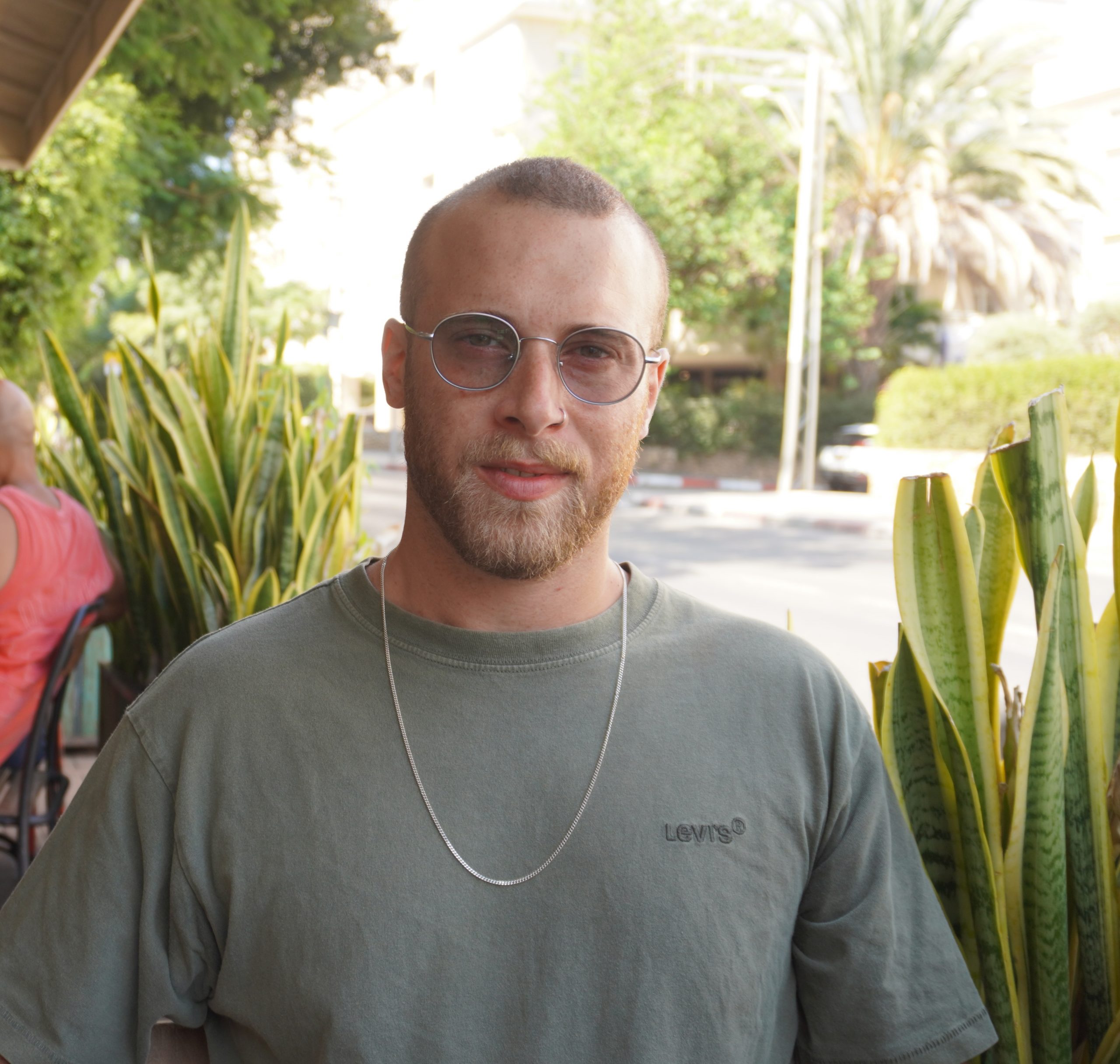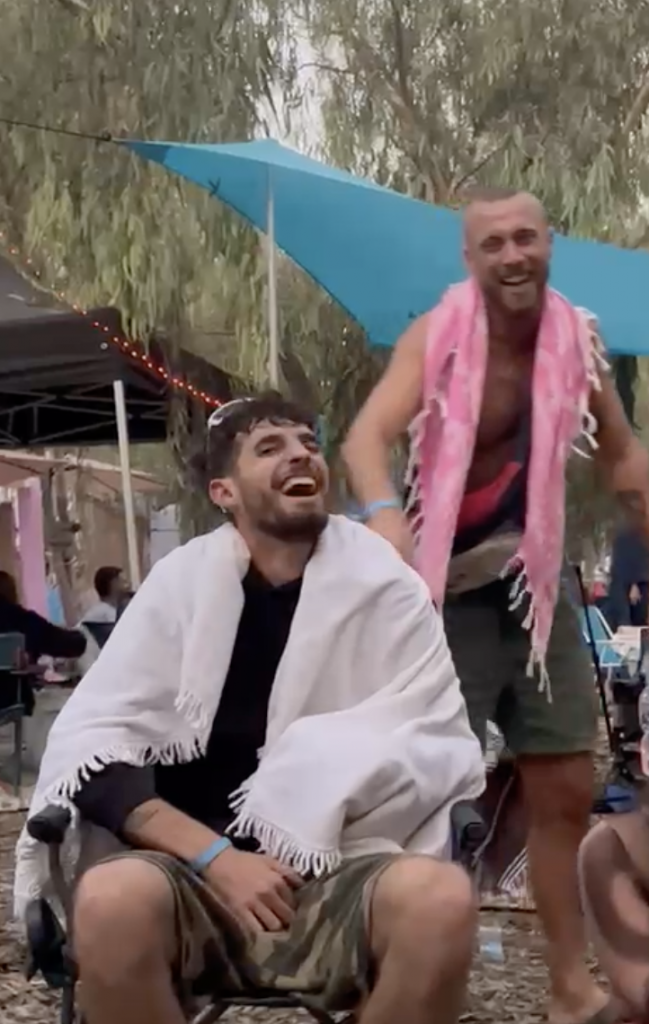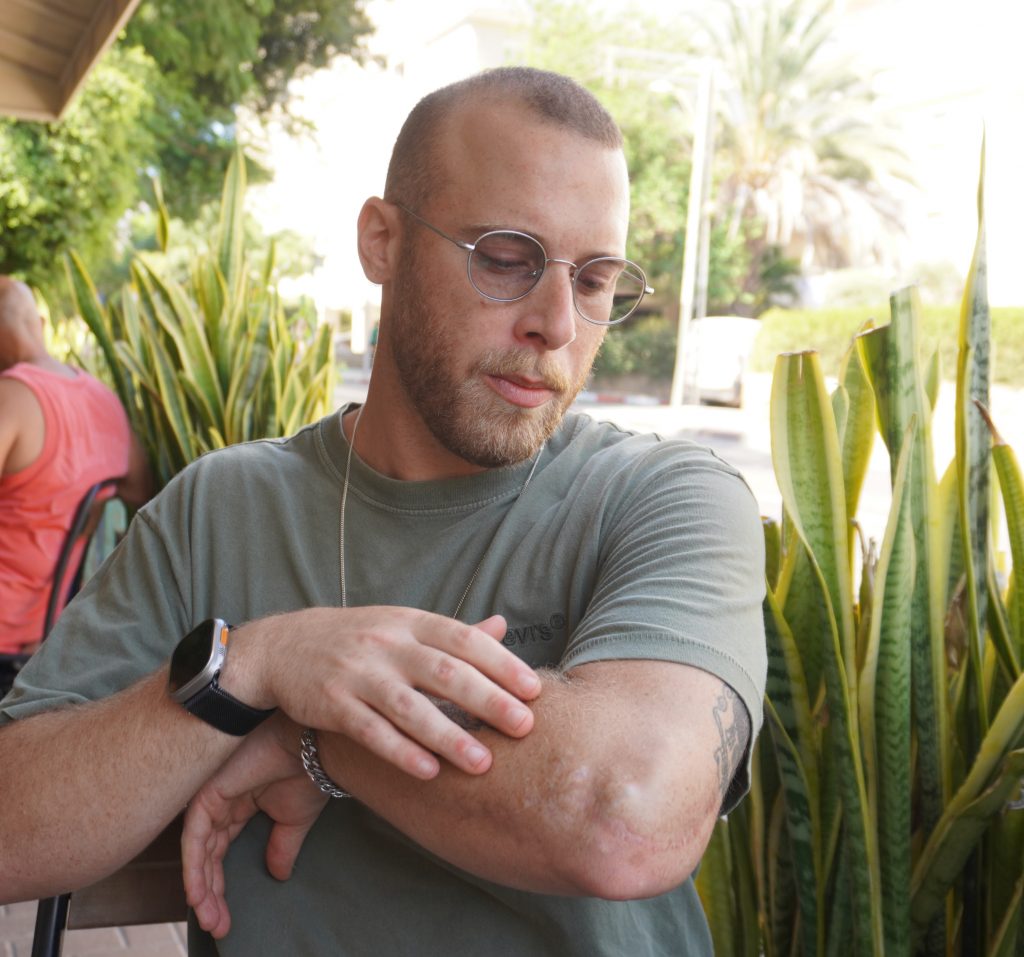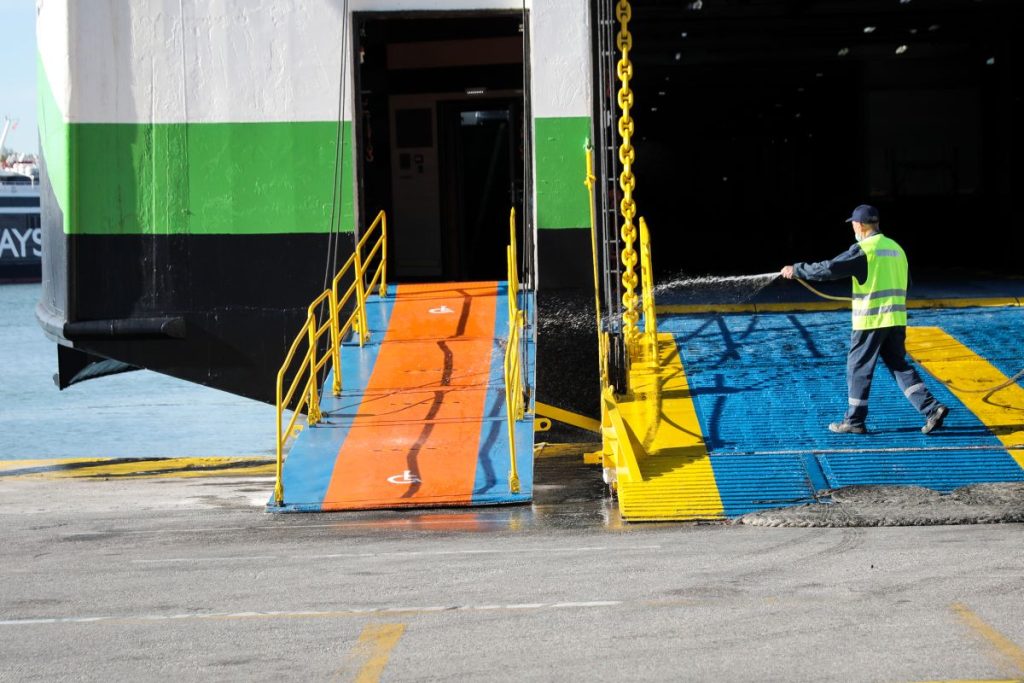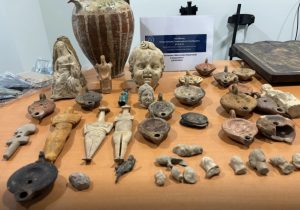Half-Greek Sahar Ben Sela found himself (almost) by chance at the Nova Festival at dawn on October 7. And it was by luck he escaped with his life by hiding under the blown apart, bullet-riddled corpses of 20-year-old girls. Today, he struggles with the physical and mental wounds he sustained that day.
“Have you seen Saw?” he asks me. “Just the first one,” I answer. “Yes. That one! Well, I experienced that for real…,” he tells me, then begins to relate the events like a scene from a film. He draws me in and it’s like I’m back at the Nova Festival again, but not as I saw the site months after the carnage. But that’s how traumatic experiences are: there is no ‘trauma lite’. You experience it differently when it’s fiction and you read, hear or see it on a screen. Even those videos that only a few people have seen uncut and without pixelation. I watched as much as I could. But, again, the experience is exponentially more intense when it’s happening there before your eyes, when you’re in the scene yourself.
So, here I am in a cafe in Herzliya, north of Tel Aviv, with the survivor, a camera and two cups of coffees. “Do you mind if I smoke?” he asks me. “No,” I say. He lights up and takes a deep drag, I can see the bullet and shrapnel scars in his arm. He goes on.
The Games Fate Plays
Sahar has a really positive aura. He’ll be thirty-two years old next birthday, and though everyone thinks he’s Russian, he’s actually one of us, as he says, descended from Athenian Jews on his mother’s side. His father’s family are Jews from Libya. Until October 7, life was good as he studied and made a living as a bartender in one of Tel Aviv’s best-known clubs. Everything was just fine until October came along. But what happened next, even the scriptwriter for Saw would have had difficulties imagining. Sadly for Sahar, though, what followed wasn’t a screenplay: it was real life
My girlfriend and I were planning a trip to Sinai, he says. A mutual friend of ours, a DJ, was to make his debut at Nova, which was going to be held in central Israel. But they moved the venue to Gaza the very next day. So I said to my girl, let’s go to Sinai and pop into the party on the way back, never mind if we’re a bit old for trance parties. But then, a few days before Nova, we broke up—she went to Sinai alone and I stayed here. I’d given my tickets for Nova away, but I said, “What the hell, I’ll go”. But I couldn’t get another ticket anywhere. I called a friend, who told me just to show up and he’d sort something out. But as I didn’t even have any transport, I stayed home. Until, at the very last minute, on the night of the party, a friend called and said someone had dropped out, so he had room in his car. And off we went! We arrived at Nova three in the morning. We had fun. The sun came up. He shows me a video of them joking around, just a few seconds long. And it was at that precise moment, he remembers, at six, six-thirty, that it all started.
Blow by Blow, Second by Second
He noticed a girl in his group looking fearfully up at the sky, which was suddenly thick with rockets flying out of Gaza into Israel. It was right after that the first shots were fired. Everyone started running and shouting, some crumpled up dead on the ground, others got into cars, others still started running into the fields. They scattered. He entered a shelter he found down the road. There are similar structures all over Israel, but especially there on the border with Gaza, but they’re designed to protect against rockets, not terrorists. Then they heard gunfire outside.
Two grenades clattered through the entrance. One didn’t explode. The other scythed through a group of girls in front of him. All of them 20 somethings. And I was suddenly under the girls’ bodies, he says. Then I heard a gun jam, I pulled one of the bodies on top of me and played dead. I was in a special unit in the Navy, and we’d been trained for scenarios like this. Just as he came in and started shooting, I lifted the girl’s head a little, so he’d think she was alive and not shoot lower down. And that’s what happened—I felt the bullets slamming into her lifeless body, which I was holding up like a shield. I watched him standing between two corpses, laughing with satisfaction at the thought of killing a live one.
The Final Countdown
He didn’t realize he’d been wounded, too, until some time later, when he heard someone shouting in unaccented Hebrew that if anyone was still alive, they should shout out. As he came out, he saw he had a entry wound in his arm. They took him to hospital and operated on him. He was lucky there as well as in the shelter, where he’d seen the only other survivor of the grenades and the bullets, a girl in the corner, look in horror at her dead boyfriend, then at the organs hanging out of her chest, then die: a doctor told Sahar he’d have lost his arm if the bullets had entered an inch or so from where they did.
And how have the last ten months been? He tells me people don’t understand what it means to live with this sort of psychological trauma. “A new image surfaces every day, which I must have suppressed to keep going, or forgotten.” “So, hasn’t it got any more bearable,” I ask. “No,” he replies. “Actually, I think it’s just getting started. I’ve only now begun to relive my memories, and I don’t think they’ll ever go away. This is something that stays with you forever. Asked what that means in practical terms, he explains that he no longer leaves the house unless he has to. I feel like it could happen at any time… and it could. Even now, as we’re talking. You know, here in Israel, we live with it from the day we’re born. It can’t be otherwise. But you have to experience it to fully understand.”
What Peace?
Still, he’s not a quitter. He’s continuing with his studies in journalism and he now thinks he might want to go into politics one day. Peace? “Unfortunately, they don’t want peace, he says with disappointment in his voice. They just want to make us disappear. And we can’t allow that to happen.” It’s a sentiment that’s been prevalent in Israel since October 7, especially since the massacres were carried out in kibbutzim, the centers for the practical implementation of leftist ideology. There were many well-known activists among the slaughtered, who had fought for peace and helped the Palestinians for decades. Few of them now believe in the possibility of peace. The others hope it will be achieved one day, but—being Israelis and so more plain-spoken and pragmatic than other nations—they tell you plainly they don’t expect to see it. And if these people have lost hope, no one can expect it from people who have lost family or friends, or who—like Sahar—have had their lives turned upside down by a real-life enactment of Saw, perhaps the most brutal psychological horror film ever made. Not today and not ever. Certainly not in a future in which the same vicious circle continues to spread its evil.
Kostis Konstantinou is ERTnews’ foreign correspondent for Cyprus and Israel
